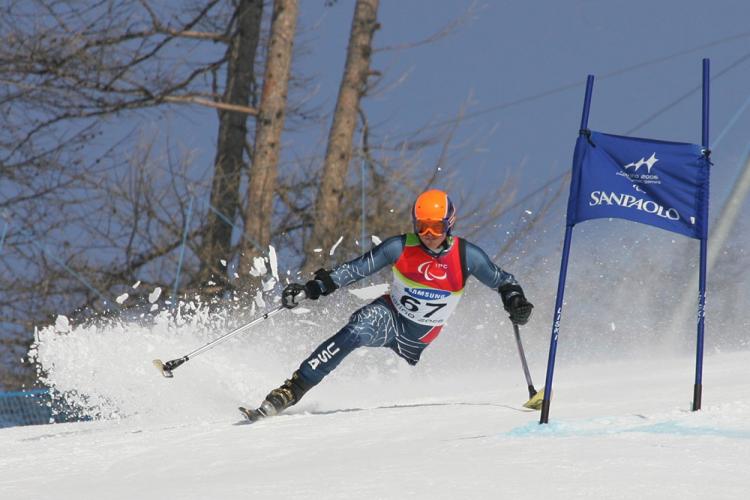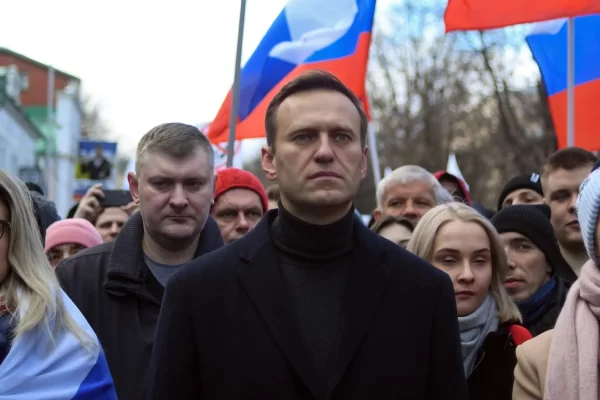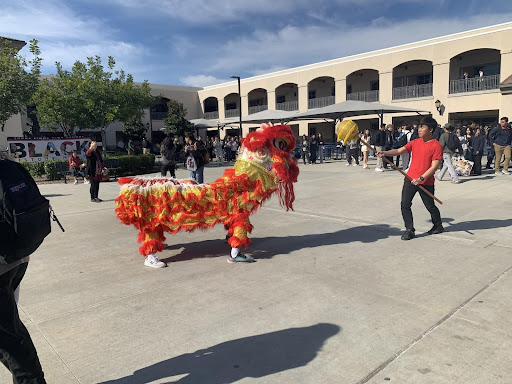Breaking Records and Limits
The 2018 Pyeongchang Paralympics
A Paralympian ski racing.
March 20, 2018
Imagine speeding down a hill at 80 miles per hour, balancing on a pair of skis and poles as the snow piles up even higher. Now, try imagining doing that while being visually or physically impaired. It sounds pretty impossible to most, but over 500 incredibly determined and talented athletes did exactly that- or a different winter sport- in this year’s 2018 Pyeongchang Winter Paralympics.
The ten-day event began shortly after the conclusion of the 2018 Pyeongchang Winter Olympics, in the same stadium. The phrase “Passion Moves Us” was a perfect description for the opening ceremony, which started off with Shin Myeong-Jin, a Korean performer with prosthetic legs and arms (NBC). Each country’s athletes took their turn circling around the venue; quite notably South Korean and North Korea were displayed as separate countries in contrast to their appearance at the regular Olympics.
After the torch was ignited, came a burst of fireworks over the venue, marking the beginning of a truly inspirational Paralympics. The games broke a number of records, beginning with the sheer number of attendees “more than 343,000 tickets were sold, which was 16,000 more than for Sochi in 2014, 100,000 more than Vancouver 2010 and more than double the total sold for Torino 2006” (BBC News).
But the athletes were the true heroes. Canadian Brian McKeever, a cross-country skier, won his 13th Paralympic gold medal, setting a new record. Similarly, Slovakia’s Henrieta Farkasova Henrieta Farkasova earned the position as the most decorated athlete, winning four gold medals and a silver medal (The Guardian). Winning the first South Korean Winter Paralympic gold medal in history was the cross-country skier Sin Eui-Hyun, whose victory gained attention from the entire country (BBC News). But they were far from the only athletes to create new records and set new standards for their fellow Paralympians. Each athlete had their own unforgettable story to tell, making the games a truly motivational experience for both attendees and viewers around the world.
Alice Ding (10) described the Paralympics as “unbelievably inspirational” because the athletes “really showed off their talent and determination”.
The top five countries with the most medals were:
- The United States (36)
- NPA (24)
- Canada (28)
- France (20)
- Germany (19)
Last but certainly not least, the games ended with an amazing closing ceremony. The ceremony included a tribute to the late Stephen Hawking, with the president of the International Paralympic Committee, Andrew Parsons, quoting him. Parsons mentioned that Hawking “urged us all to look at the stars and not our feet”, and that “while Hawking tested the limits of his imagination, Paralympians have pushed the boundaries of endeavor. The world has focused not on what holds you back, but on what pushes you forward. Every generation gets a chance to change the world. Paralympians! This is your time to be a catalyst for a more inclusive society” (The Guardian).
Notably, a South Korean pianist named Yeaji Kim provided a beautiful performance. She has been blind since the age of five and has recently developed a revolutionary method of reading music for the visually impaired. Additionally, South Korean K-Pop singer, Ailee, paired with Bae Hui Gwan Band (whose members have a number of disabilities) to fill the venue with her powerful vocals. Of course, Beijing concluded the ceremony and the 2018 Pyeongchang Winter Paralympics with their own preview of the 2022 Beijing Winter Paralympics- creating memories and excitement for the next set of Olympics.





















